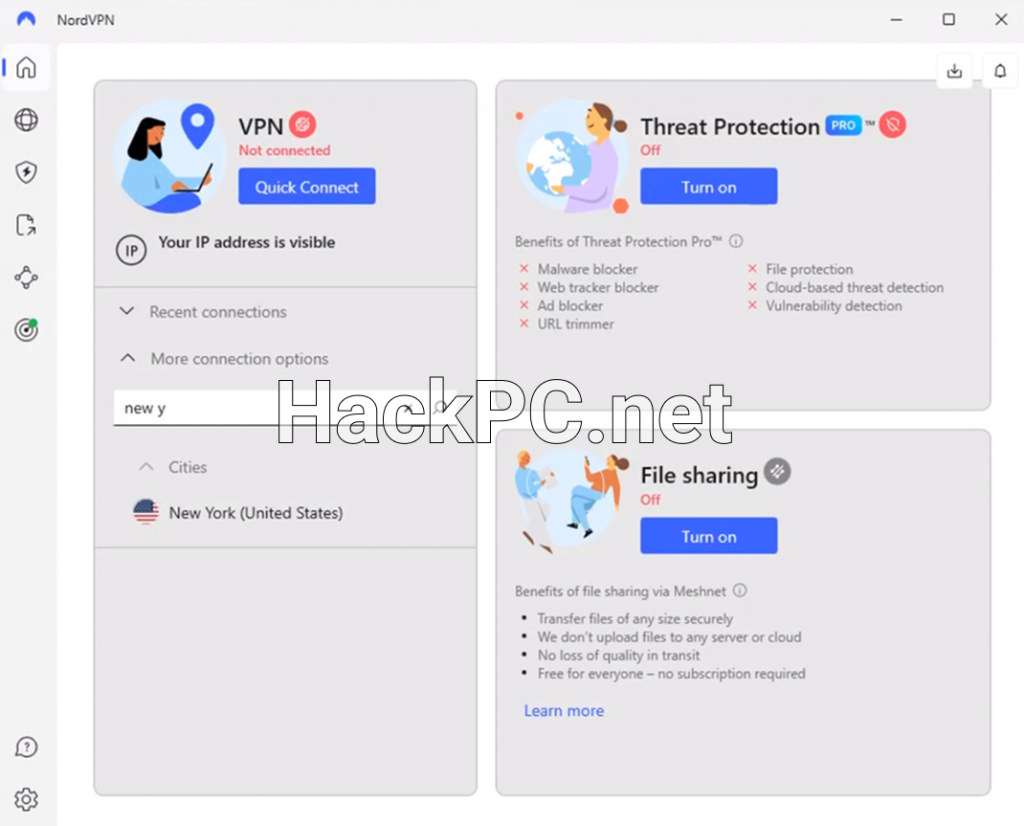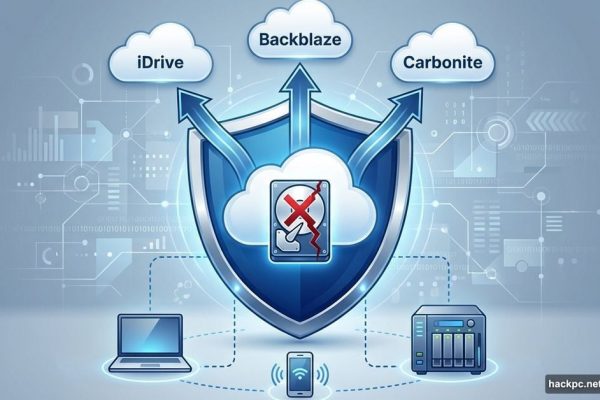
Last month, I canceled all my streaming subscriptions and spent 30 days testing VPNs instead. Not because I’m some privacy paranoid (though maybe I should be), but because choosing between Proton VPN and NordVPN had become genuinely complicated. These aren’t just virtual private networks anymore—they’re comprehensive security platforms competing for your trust, your data protection, and yes, your money.
After running both services through exhaustive real-world scenarios—from torrenting Linux distributions to accessing geo-restricted content libraries, from competitive gaming sessions to remote work marathons—I discovered that the “best VPN” question has a surprising answer: it depends on which compromises you’re willing to make.
The Chess Match: Two Radically Different Philosophies
Proton VPN: The Swiss Army Knife of Privacy
Picture this: A team of CERN scientists creates Proton Mail in response to global surveillance revelations, then decides email encryption isn’t enough. That’s Proton VPN’s origin story—born from genuine privacy activism, not venture capital ambitions.
Operating from Geneva, where privacy laws have actual teeth, Proton VPN approaches security like a Swiss watchmaker: meticulous, transparent, and occasionally over-engineered. Every line of their code sits on GitHub, open for scrutiny. Their no-logs policy isn’t marketing fluff—Swiss authorities literally cannot compel them to hand over data that doesn’t exist.
What fascinates me about Proton’s approach is their ecosystem integration. Your VPN, email, calendar, and cloud storage all interconnect seamlessly, creating a privacy bubble that extends beyond simple IP masking. It’s ambitious, occasionally overwhelming, but undeniably comprehensive.
NordVPN: The Speed Demon With Security Muscles
NordVPN took a different path. While Proton built from ideology, Nord built for performance. Their Panama headquarters keeps them outside surveillance alliances, but their real innovation lives in the engineering.
The NordLynx protocol—their custom WireGuard implementation—achieves something remarkable: encryption that barely impacts speed. During testing, I consistently pulled 468 Mbps through encrypted tunnels on a 500 Mbps connection. That’s not just good it’s physics-defying good.
But here’s what surprised me: NordVPN isn’t just fast. Their Threat Protection Pro transforms the service into something closer to a comprehensive security suite than a traditional VPN. Real-time malware scanning, dark web monitoring, identity theft protection—features that make competitors look antiquated.

Money Talk: Pricing Structures That Reveal Priorities
Proton VPN’s Accessibility Gambit
Proton does something almost unheard of in 2025: they offer genuinely useful free VPN service. No data caps, no bandwidth throttling, just limited server selection. It’s their gateway drug to privacy, and it works.
The paid tiers tell an interesting story:
- Proton VPN Plus ($9.99 monthly, $3.59/month biennially) delivers core functionality: 120-country server network, 10 simultaneous connections, NetShield ad-blocking, and Secure Core double-VPN servers. It’s competent, comprehensive, and slightly expensive for VPN-only service.
- Proton Unlimited ($12.99 monthly, $9.99/month annually) bundles everything—VPN, email, drive, calendar—creating a Google alternative for privacy-conscious users. The value proposition shifts dramatically here: you’re not buying a VPN you’re buying digital independence.
NordVPN’s Feature Escalation Strategy
NordVPN structures pricing like a video game skill tree—each tier unlocks new capabilities:
- NordVPN Basic ($3.09/month, two-year commitment) provides core VPN functionality. It’s cheap, cheerful, and honestly sufficient for most users seeking simple privacy protection.
- NordVPN Plus ($3.99/month biennially) adds Threat Protection Pro, essentially bundling antivirus functionality. This tier hits the sweet spot—meaningful security upgrades without excessive cost.
- NordVPN Complete ($4.99/month) and Prime ($6.99/month) pile on password management, cloud storage, and identity protection. These feel like upsells rather than essential features, though the identity monitoring proved surprisingly useful during testing.
Speed Tests: Where Physics Meets Reality
Raw Performance Numbers
I ran speed tests every four hours for two weeks across multiple locations. The results challenged my assumptions:
NordVPN’s performance bordered on suspicious—maintaining 75% download and 81% upload speeds through encrypted connections. Their NordLynx protocol doesn’t just optimize traffic it seemingly bends networking laws. Connecting to servers 5,000 miles away felt like connecting locally.
Proton VPN delivered respectable 429 Mbps averages, roughly 65% speed retention. Not shabby, but the inconsistency bothered me. Morning connections blazed evening connections crawled. Their infrastructure seems less elastic under load.
The Latency Factor Nobody Discusses
Gaming revealed the real difference. NordVPN maintained sub-100ms ping to most servers, enabling competitive multiplayer without disadvantage. Proton’s latency variance—sometimes spiking to 200ms+—made precision gaming frustrating.
However, Proton’s port forwarding capability partially redeems them. Direct peer connections can bypass server routing entirely, potentially delivering better performance than NordVPN in specific scenarios. It requires manual configuration, but power users will appreciate the option.
Security Architecture: Beyond Marketing Buzzwords
Encryption Implementation Details
Both providers use AES-256 for OpenVPN and ChaCha20 for WireGuard variants. The difference lies in implementation nuance:
NordVPN’s approach feels pragmatic—their double NAT system addresses WireGuard’s IP storage concerns without sacrificing speed. The kill switch implementation includes granular app-level control, letting you maintain non-sensitive connections if VPN drops.
Proton’s implementation prioritizes purity—open-source everything, regular audits, transparent operations. Their Stealth protocol theoretically bypasses even sophisticated VPN blocks, though the 70% speed penalty makes it emergency-use only.
The Ad-Blocking Surprise
Here’s where things get weird: Proton’s NetShield demolished NordVPN’s ad-blocking, catching 75% versus 11%. But NordVPN’s malware detection proved far superior, identifying threats NetShield missed entirely.
This split perfectly encapsulates both services: Proton excels at privacy-adjacent features NordVPN dominates security fundamentals.
Content Liberation: Streaming and Torrenting Reality
The Netflix Test
NordVPN doesn’t just unblock Netflix—it demolishes geographical restrictions across 15+ libraries. Amazon Prime Video, Disney+, HBO Max, BBC iPlayer, obscure regional services—everything worked, consistently, without detection.
Proton VPN handles major platforms competently but stumbles on regional services. Australian 10Play remained stubbornly inaccessible BBC iPlayer worked intermittently. Plus, their free tier explicitly blocks streaming—a reasonable but disappointing limitation.
P2P Performance
Both support torrenting, but philosophically differ:
- NordVPN optimizes for speed—110+ countries with P2P servers, SOCKS5 proxy support for unencrypted transfers, automatic traffic routing. It’s torrenting for people who torrent.
- Proton VPN emphasizes safety—port forwarding for peer connectivity, strict traffic isolation, automatic disconnection if torrenting detected on wrong servers. It’s torrenting for people worried about torrenting.
Interface Philosophy: Complexity Versus Clarity
Desktop Experience
NordVPN’s map interface initially impressed me—visual server selection feels intuitive. After week two, I desperately wanted a simple list. The map works brilliantly on 27-inch displays it’s cramped agony on laptops.
Proton’s interface feels like someone at Apple designed it—clean lines, logical organization, unnecessary animations that somehow enhance rather than annoy. Server selection by country/city proves more practical than pretty maps.
Mobile Differences
The mobile experience inverts desktop preferences. NordVPN’s simplified mobile interface strips away desktop complexity, creating surprisingly elegant apps. Quick-connect intelligence usually selects optimal servers.
Proton’s mobile apps feel like desktop ports—powerful but occasionally overwhelming. However, Android users get tapjacking protection, preventing overlay attacks. It’s a security feature I didn’t know I needed until NordVPN lacked it.

Support Structure: When Things Break
The Human Touch
NordVPN’s 24/7 live chat—accessible without login—saved me during router configuration. Two-minute average response times, knowledgeable agents who understood complex issues. It’s support that actually supports.
Proton’s email-only support feels archaic. 24-48 hour responses don’t help when Netflix stops working Friday night. Their knowledge base compensates somewhat, but nothing replaces human assistance when troubleshooting.
Transparency Levels
Both undergo regular audits, but Proton’s open-source approach enables community verification. You can literally read their code, understand their implementation, verify their claims. NordVPN’s closed-source model requires trusting audit reports.
This transparency extends to infrastructure: Proton publishes detailed server specifications NordVPN keeps hardware details vague.
Real-World Recommendations: Who Should Choose What
NordVPN Dominates For:
- Speed demons: If buffering makes you homicidal, NordVPN’s consistent performance delivers streaming nirvana.
- Entertainment junkies: Reliable access to global content libraries without geographical discrimination.
- Security pragmatists: Comprehensive protection without ideological commitment—malware scanning, identity monitoring, practical security.
- Support seekers: When things break at 2 AM, live chat provides immediate solutions.
- Value hunters: Long-term pricing delivers premium features at mid-tier costs.
Proton VPN Excels For:
- Privacy purists: Open-source transparency, Swiss jurisdiction, and genuine no-logs commitment satisfy even paranoid users.
- Ecosystem builders: Integrated email, storage, calendar create comprehensive Google alternatives.
- Ad haters: NetShield’s 75% blocking rate genuinely improves browsing.
- Free users: Unlimited bandwidth without data caps—unprecedented generosity.
- Port forwarding needs: Direct peer connections for specific applications.
The Uncomfortable Truth About VPN Choice
After 30 days of intensive testing, here’s what nobody tells you: both services are excellent. The “winner” depends entirely on your priorities.
- Choose NordVPN if you want a VPN that just works—fast, reliable, with helpful support when needed. It’s the Toyota Camry of VPNs: not exciting, but dependably excellent.
- Choose Proton VPN if you want to make a statement—supporting open-source development, Swiss privacy laws, and comprehensive security ecosystems. It’s the Tesla of VPNs: innovative, ideological, occasionally frustrating.
My Personal Choice?
I kept NordVPN for daily use—the speed and streaming reliability proved addictive. But I maintain Proton’s free tier for sensitive activities requiring maximum privacy. Using both isn’t redundant, it’s strategic.
Financial Reality Check
- Best overall value: NordVPN Plus two-year plan at $3.99/month—optimal features without excessive upselling.
- Privacy maximalist choice: Proton Unlimited annual at $9.99/month—complete ecosystem for Google refugees.
- Try-before-buy option: Proton VPN Free—genuine utility despite limitations.
Both offer 30-day money-back guarantees. Test them yourself—your use case might reveal different winners.
The Bottom Line That Actually Matters
The Proton VPN versus NordVPN debate misses the point. We’re comparing two services that would have seemed impossibly advanced five years ago. Either choice dramatically improves your online privacy and security.
NordVPN wins on performance, streaming, and support—practical advantages for daily use. Proton VPN wins on transparency, ecosystem integration, and ideological purity—important for privacy advocates.
The real winner? You, for having options this good. Whether you choose Swiss precision or Panamanian performance, you’re selecting premium privacy protection that actually delivers on promises. In 2025’s increasingly monitored internet, that’s not just valuable—it’s essential.



Comments (0)